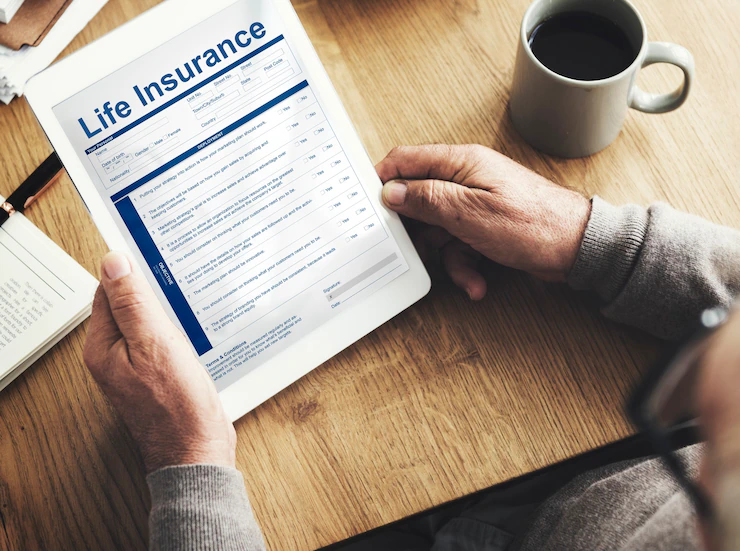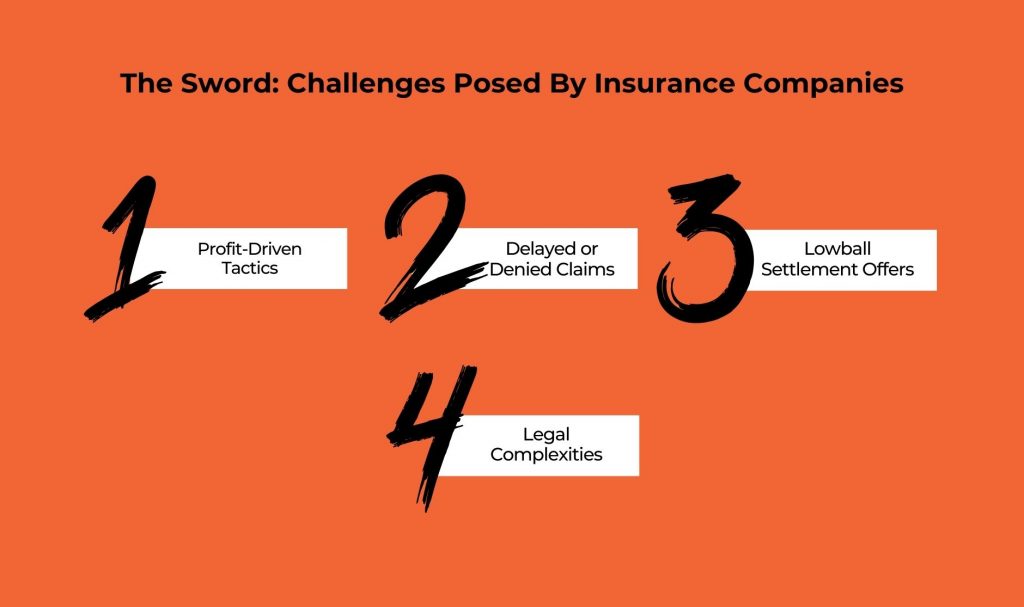The Role Of Insurance In Personal Injury Cases: A Double-Edged Sword?
5 Mins Read
Published on: 03 October 2023
Last Updated on: 20 January 2025

toc impalement
Insurance, an essential aspect of modern life, offers a safety net in unforeseen situations. Whether it’s health, auto, or home insurance, these policies are designed to provide financial security when the unexpected happens.
As a result, insurance plays a dual role in the chaotic world of personal injury cases. It can be a lifeline, ensuring injured individuals receive the compensation they deserve.
Yet, it can also be a formidable adversary, with insurance companies often employing strategies to minimize payouts. In this exploration of the role of insurance in personal injury cases, we delve into the complexities and challenges that this double-edged sword presents.
The Shield: How Insurance Protects Individuals

In times of personal injury, insurance serves as a protective shield, safeguarding your financial recovery and well-being. With the help of your lawyer, you can successfully obtain all the positives that insurance companies bring. You can get the care you deserve with Whitley Law Firm.
Together, you can explore all the benefits of insurance listed below:
1. Financial Safeguard for Victims
Insurance is, fundamentally, a protective shield for those who suffer any level of injuries due to the negligence or wrongdoing of others. In personal injury cases, it serves as a vital resource to cover medical bills, rehabilitation costs, property damage, and other losses experienced due to the accident.
2. Compensation for Medical Expenses
Health insurance is crucial in ensuring accident victims receive the necessary medical care. It covers doctor’s visits, hospital stays, surgeries, and rehabilitation therapies, alleviating the financial burden on injured individuals and their families.
3. Auto Insurance
In North Carolina, Personal Injury Protection (PIP) and Medical Payments (MedPay) coverage are not mandatory requirements. Instead, the state adheres to a fault-based insurance system. This indicates that the faulty driver’s insurance usually covers the medical expenses and damages incurred by the injured party.
Knowing the specific insurance regulations in North Carolina is crucial to understand how coverage works.
4. Liability Insurance
For the at-fault party in an accident, liability insurance steps in. It covers the cost of legal assistance and any potential settlement or judgment up to the policy limits. This protection helps individuals avoid severe financial hardship resulting from a lawsuit.
The Sword: Challenges Posed By Insurance Companies

While insurance offers protection, it’s essential to navigate the challenges that insurance companies present, ensuring you receive the compensation you deserve. The challenges are as follows:
A. Profit-Driven Tactics
While insurance is meant to provide financial protection, it’s key to remember that insurance companies are profit-driven. As such, they may employ various tactics to minimize payouts and protect their bottom line.
B. Delayed or Denied Claims
Insurance companies may delay processing or deny claims, leaving injured individuals in financial limbo. This delay can be particularly distressing when medical bills pile up and the need for compensation is urgent.
C. Lowball Settlement Offers
When insurance companies offer settlements, they may be far lower than what is fair and necessary to cover all accident-related expenses adequately. Adjusters often employ negotiation techniques to convince claimants to accept lower amounts.
D. Legal Complexities
Navigating the intricate web of insurance policies, coverage limits, and exclusions can be daunting for individuals not well-versed in the legal aspects of personal injury cases. Insurance contracts are often laden with complex language and clauses that can impact the outcome of a claim.
How To Leverage Insurance Effectively

Effective leveraging insurance can be a balancing act in personal injury cases, where the right strategies ensure you receive the compensation you need.
Below, we will offer the following tips on how to navigate the insurance game following an accident successfully.
1. Seek Immediate Medical Attention
After an accident, prioritize your health. Seek immediate medical attention, and make sure your injuries are well-documented. This step ensures your well-being and provides a clear record of your injuries for insurance purposes.
2. Preserve Evidence
It helps to gather and preserve evidence related to the accident. This evidence can include anything from photographs of the scene and property damage to your medical bills and documented injuries. Eyewitness statements and police reports are also essential pieces of evidence.
3. Report the Incident Promptly
Instantly notify your insurance company about the accident. Prompt reporting is often a requirement in insurance policies, and failure to do so could jeopardize your claim. However, keep your attorney close; you don’t know when and how you might need them.
4. Be Cautious with Recorded Statements
Insurance adjusters may request recorded statements from you. While it’s essential to cooperate with your insurance company, be cautious about making statements that could be wrongfully utilized against you later.
5. Ensure Documenting Every Tiny Expense
Maintain a meticulous record of all accident-related expenses, including property damage repair estimates, medical bills, and any other costs incurred due to the accident. These records will serve as crucial evidence for your claim.
6. Understand Policy Limits
Familiarize yourself with the insurance policies involved in your case, including your coverage and the at-fault parties. Understanding policy limits can assist you in assessing the potential compensation available to you.
7. Don’t Rush Settlements
Avoid accepting an early settlement offer from an insurance company without thoroughly assessing the extent of your injuries and losses. Consult with an attorney to ensure any settlement is fair and comprehensive.
Move Forward Navigating The Insurance Maze
Insurance can be both a lifeline and a challenge in the aftermath of a personal injury. While it provides a financial safety net for accident victims, insurance companies often employ tactics to protect their interests.
By understanding the complexities of insurance and taking proactive steps to defend your rights, you can navigate the insurance maze effectively. If you liked this content, let us know and help us serve you better with more focused content.
Thank you, and have a great day ahead.
Read Also:


















Comments Are Closed For This Article